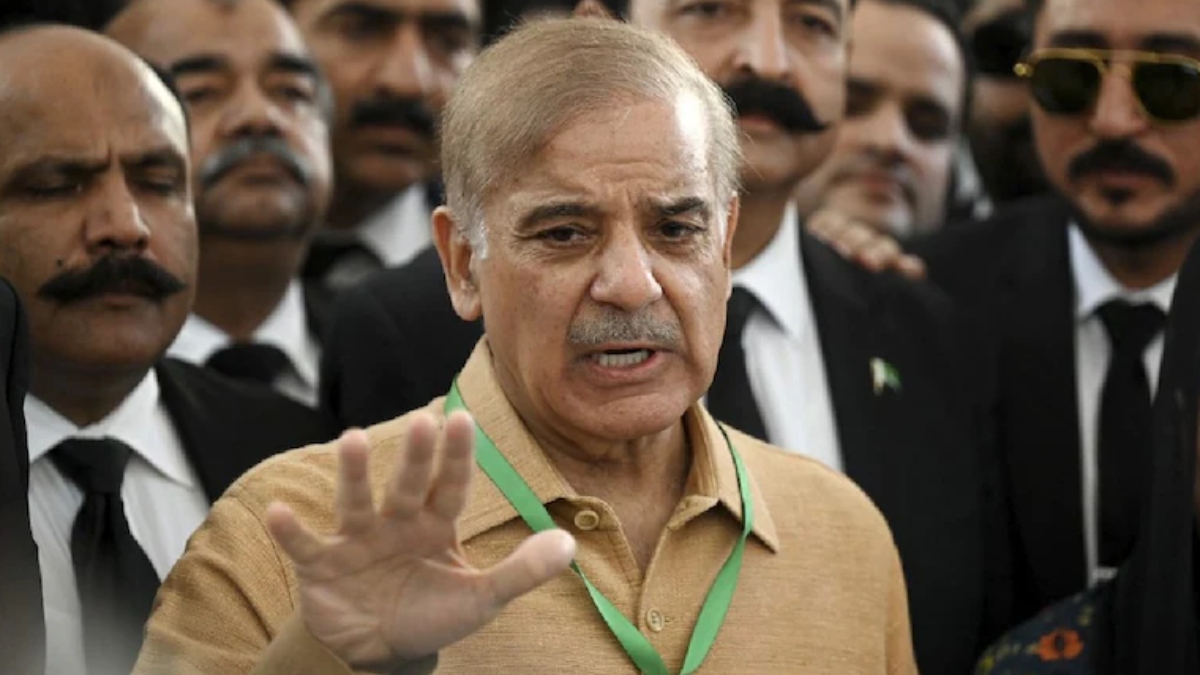


Pakistan’s new Prime Minister Shehbaz Sharif’s insistence on “settlement of the Kashmir issue” has confirmed India’s apprehensions that despite a change of guard, there will be no change in Islamabad’s approach on this agenda and it will, for that matter, continue to harp on Kashmir in a bid to internationalise the issue.
Soon after being elected as Pakistan’s Prime Minister, Sharif in his inaugural address raised the issue of abrogation of Article 370 in Kashmir, alleging that the people in the Valley were bleeding and Pakistan will provide them with diplomatic and moral support besides raising the matter at every international forum. “This has come exactly on expected lines, and India will definitely counter any misleading claim from Pakistan under Shehbaz,” said a diplomat familiar with the government’s preparation on India’s diplomatic strategy.
With Pakistan’s track-record and intention in mind, India has sent out stern messages to Pakistan over terrorism. The latest message to Pakistan on the issue of terrorism came on 13 April from the Ministry of Home Affairs (MHA). Just two days after Sharif took over as the new Pakistan PM, the MHA designated Mushtaq Ahmed Zargar, one of the three prisoners released by India in exchange for passengers of the hijacked Indian Airlines 814 flight, as a terrorist under the stringent Unlawful Activities (Prevention) Act 1967. What is more significant in this development is that Zargar had been affiliated with the Jammu and Kashmir Liberation Front terror outfit, and had gone to Pakistan for obtaining illegal arms and ammunition training. The MHA pointed this out in its gazette notification in what suggests Pakistan’s role in promoting terrorism in Jammu and Kashmir. “This is a message to Shehbaz Shrif who is harping on Kashmir while the state actors continue to back training of terrorists in Pakistan to foment problems there,” said a government official.
Earlier, setting the direction for India’s diplomatic campaign, Prime Minister Narendra Modi gave a clear message to Pakistan in his congratulatory tweet on day one, reiterating his desire for “peace and stability in a region free of terror”. Soon after his virtual talks with the US President Joe Biden on Monday, PM Modi congratulated Sharif on Twitter after the latter’s win. After PM Modi’s message, India from Washington sent out a stern message to Pakistan over terrorism even as Sharif replaced Imran Khan as PM. Despite a change of guard in Islamabad, India and the US asked Pakistan to take “immediate, sustained, and irreversible action” to ensure that no territory under its control is used for terrorist attacks and called for the perpetrators of the 26/11 Mumbai attack and the Pathankot attack to be brought to justice. The demand for action by Pakistan was made through a joint statement issued after the 2+2 Ministerial attended by the US Secretary of State Antony Blinken and Defence Secretary Lloyd Austin, Defence Minister Rajnath Singh and External Affairs Minister S. Jaishankar.
“I just want to convey to him (Sharif) to curb terrorism…my best wishes with him,” Rajnath Singh said in Washington—another blunt message for the new Pakistan PM from India’s key minister. “Even as Shehbaz Shrif in his first address sought to internationalize the Kashmir issue, India and the US jointly reminded Pakistan that it needs to do a lot in terms of tackling terrorism,” a diplomat said.
“Sharif’s remarks that he wanted good relations with New Delhi, but it cannot be achieved without the resolution of the Kashmir issue suggest that he is not serious about mending ties with India,” the official adds. “It was a timely move by EAM Jaishankar to persuade his US counterpart Antony Blinken to issue a statement, categorically asking Pakistan to crack down on terrorists on its territory and the perpetrators of terror acts in India such as Pathankot and Mumbai attacks,” he added.
Another part of the joint statement is important in this context. “The Ministers of India and the US called for concerted action against all terrorist groups, including groups proscribed by the UNSC 1267 Sanctions Committee, such as al-Qaeda, ISIS/Daesh, Lashkar-e-Taiba (LeT), and Jaish-e-Mohammad (JeM), and Hizb ul Mujahideen.” “It is Pakistan’s army and ISI which continue to support these terror outfits that have been named in the joint statement,” said an official. “No significant improvement in ties can be expected unless Pakistan addresses the issue of cross border terrorism,” a diplomat said.